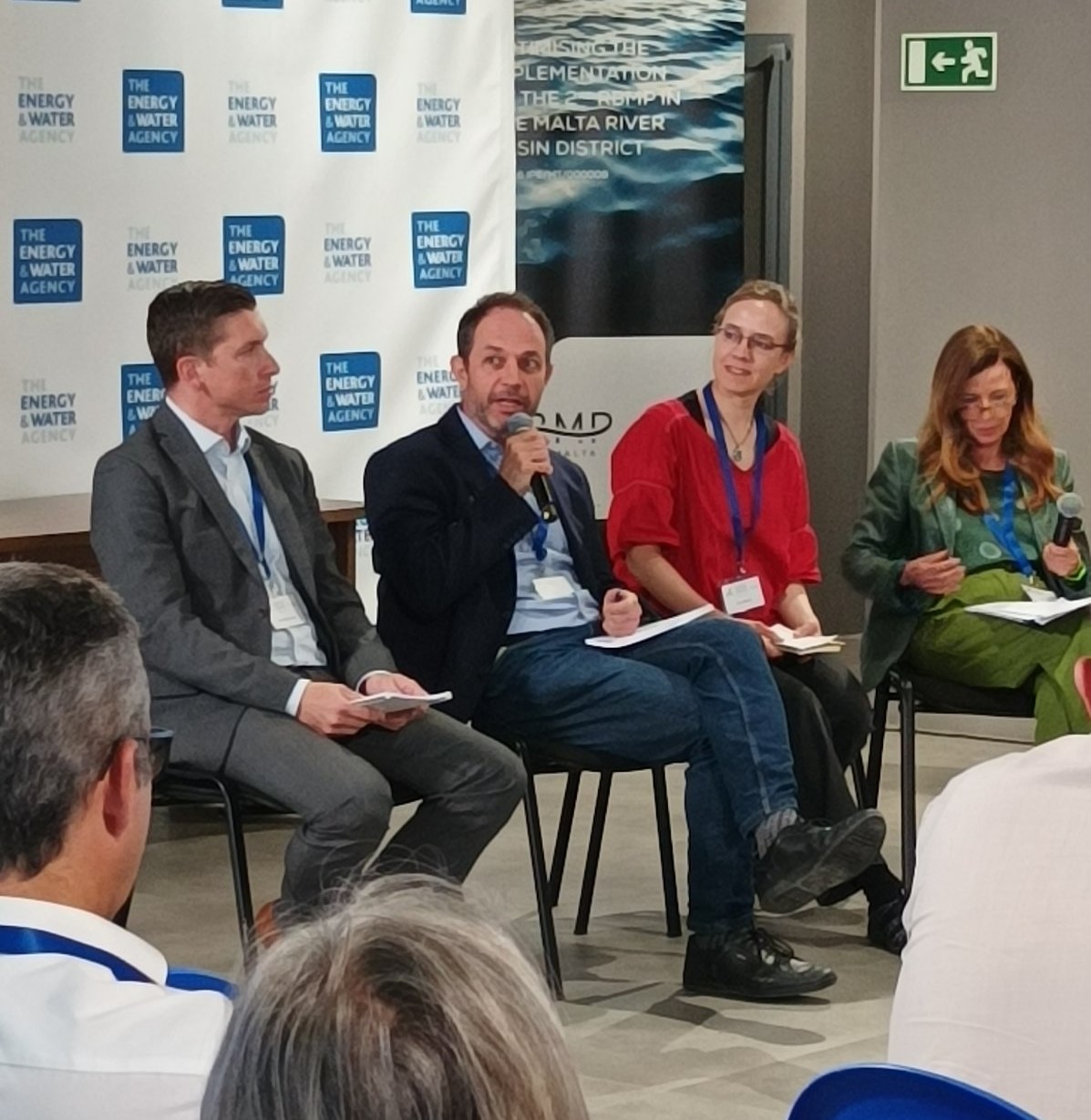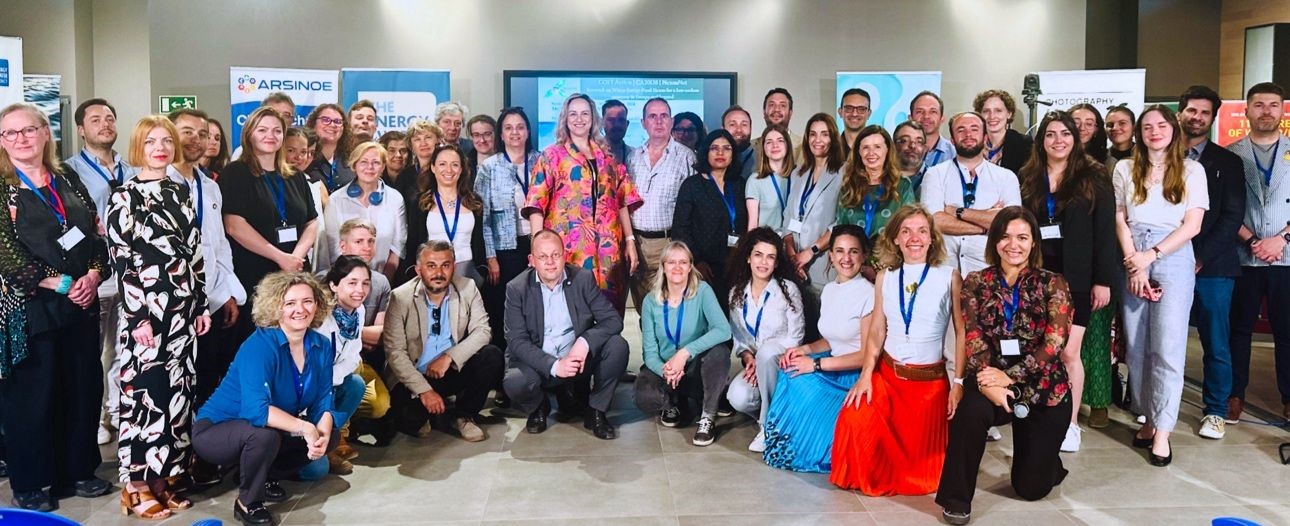On May 14th 2024, the NexusNet Cost Action Regional Stakeholders Forum on Resource Recovery and Reuse in the Water-Energy-Food Nexus for a Low-Carbon Economy took place in Malta’s National Water Conservation Awareness Centre, Rabat, hosted by the country’s Energy & Water Agency. GWP-Med participated as Leader of the Communication & Dissemination Work Package of the H2020 REXUS project.
The event brought together experts and stakeholders aiming to tackle the pressing challenges of resource scarcity, climate change, and sustainable development, through a WEFE Nexus approach. A number of EU-funded projects were represented at the forum, which delved into the dynamic intersection of water, energy, and food systems. It explored how innovative resource recovery and reuse strategies can advance the EU green agenda and help achieve Sustainable Development Goals (SDGs).
Key discussions included:
1. Interconnected Solutions: highlighting the importance of cross-disciplinary collaboration for integrated solutions in the WEF-Nexus.
2. Policy Integration: examining how well-crafted policies can drive sustainable practices.
3. Community Engagement and Social Impact: emphasizing the role of community involvement in successful sustainability initiatives.

On behalf of GWP-Med, Alexandros Kandarakis, Head of Communications, participated in the panel on “Stakeholder engagement in Nexus projects: good practices and lessons learned”, sharing the REXUS project experience, drawing in particular on the success of the Pinios pilot area, which is led by REXUS pilot leader SWRI. His intervention was also informed by GWP-Med’s long experience of engaging stakeholders in political processes around the WEFE Nexus, from projects such as the SEE Nexus project.
All panelists stressed that stakeholders need to be treated with respect, with time and effort being devoted to understand their needs, and desiging solutions for them, rather than only using them as ‘data-providers’ to satisfy the project needs. Mr. Kandarakis stressed that relationships of trust are at the core of successful engagement, and these require the investment of time, as well as the building of a stable frame of reference. Irrespective of a project's duration, stakeholders need continuity from the side of scientists and organisations, as well as the willingness to sustain actions over time, until real results are achieved.
This is the conclusion from GWP-Med’s experience particularly from the case of transboundary cooperation. For example, the case of the Drin river basin shows that real results can be achieved, but often requiring work over a decade or more, gradually providing the framework and means for effective engagement.
GWP-Med is currently also part of the WEFE4MED project, which is building the Prima Programme WEFE Nexus Community of Practice.
